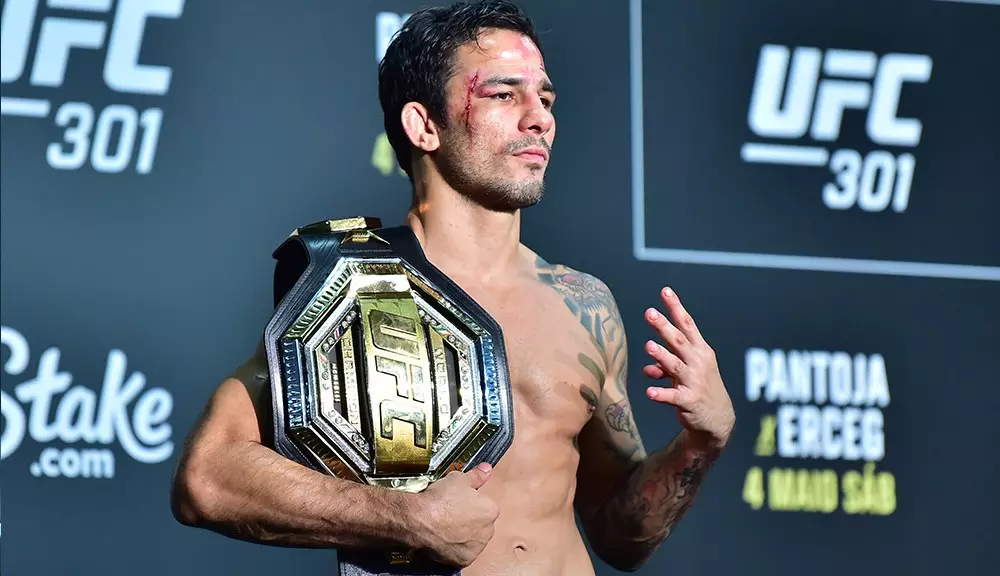As the flyweight division in the UFC evolves, the spotlight is set on champion Alexandre Pantoja, who will defend his title against the former RIZIN champion Kai Asakura at UFC 310 on December 7. This confrontation at the T-Mobile Arena in Las Vegas creates an intriguing prospect, given Asakura’s impressive record of 21 wins and 4 losses in MMA, along with his debut in the UFC. The decision to allow Asakura, a newcomer, to challenge for the title has stirred a mix of reactions, especially from established contenders like Kai Kara-France who feel the newcomer may not merit an immediate shot at the championship.
Pantoja, however, holds a different viewpoint on the situation. Having established his reign by defeating key figures in the division, he argues that the timing aligns perfectly for introducing a fresh face like Asakura. “I think it’s all about time,” Pantoja remarked, indicating his belief that the dynamics of the division necessitate this new match-up. The champion has already faced and defeated top contenders like Brandon Moreno and Brandon Royval multiple times, leading him to view Asakura not just as an opponent, but as an opportunity to expand the narrative of the division itself.
One of the standout elements of Pantoja’s argument is the value of variety in competition. As he prepares to face Asakura, Pantoja is not only looking to secure his title but also to rejuvenate interest in the flyweight class. The recent achievements of fighters such as Moreno, who recently defeated Amir Albazi, and Royval, who notably ended Tatsuro Taira’s unbeaten streak, highlight a sense of competitive momentum within the division. Pantoja welcomes this influx of talent, recognizing that introducing new challengers can elevate the overall excitement for the sport.
Despite Pantoja’s optimism, the discourse surrounding title shots for newcomers is far from settled. Critics highlight the potential undermining of established fighters’ achievements when newer athletes, such as Asakura, are thrust into high-stakes situations. Pantoja acknowledges these criticisms but maintains that this fight presents a unique moment for both the champion and the challenger. He articulates that after his fight with Asakura, others in the division will have an opportunity to measure themselves against a fighter with a legacy from a different organization, thereby enriching the competitive landscape.
Ultimately, Pantoja sees his impending fight with Asakura as not merely a title defense but as a catalyst for transformation within the flyweight division. By embracing a challenger who has navigated another combat sports landscape, Pantoja invites a narrative of evolution and excitement. As the fight date approaches, the anticipation surrounding UFC 310 grows, heralding a significant chapter for both champion and challenger amidst an evolving sport where fresh faces can bring exhilarating new dynamics to established ranks.

